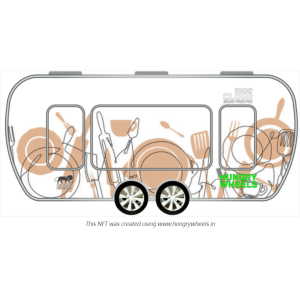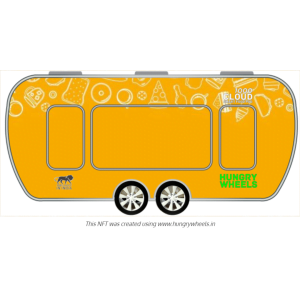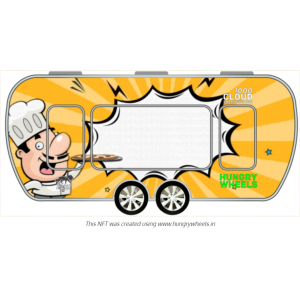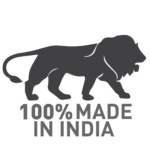In an era where sustainability is not just a buzzword but a pressing necessity, the food industry is undergoing a transformation. Food trucks, once symbols of convenience and indulgence, are now becoming platforms for sustainable practices. If you’re considering starting a food truck business in 2024, embracing sustainability isn’t just an option—it’s a strategic advantage. Let’s delve into how you can set up a sustainable food truck in the current landscape.
Setting Up A Sustainable Food Truck In 2024
1. Eco-Friendly Design:
- Begin with the basics: your truck itself. Opt for a vehicle with good fuel efficiency or, even better, explore electric or hybrid options if feasible.
- Design your truck with sustainability in mind. Use eco-friendly materials for construction and insulation. Incorporate renewable energy sources like solar panels to power appliances. This not only enhances the truck’s functionality but also positions it as a forward-thinking innovation in the food truck industry.
2. Local Sourcing and Seasonality:
- Partner with local farmers and producers for sourcing ingredients. This practice ensures fresh, high-quality offerings while reducing your carbon footprint.
- Embrace seasonal menus that reflect the freshest produce available. Highlight the origin of your ingredients to your customers. Transparency builds trust and emphasizes your commitment to supporting local communities and reducing food miles, a key factor in transforming the food truck industry toward sustainability.
3. Reduce, Reuse, Recycle:
- Minimize waste by implementing practices such as composting organic waste and using biodegradable or compostable packaging. Such efforts contribute to a sustainable food truck model that resonates with eco-conscious customers.
- Encourage customers to bring their own containers or offer incentives for using reusable containers. Invest in a water filtration system to provide refills for reusable bottles. These practices not only enhance your sustainability efforts but also position your food truck business as a responsible and forward-thinking player in the food industry.
4. Energy-Efficient Operations:
- Choose energy-efficient appliances for your kitchen. Opt for LED lighting both inside and outside the truck to reduce energy consumption, a vital aspect of a sustainable food truck.
- Implement smart technologies to monitor and regulate energy usage, such as programmable thermostats and energy-efficient refrigeration systems. These steps are crucial for any food truck business aiming to optimize sustainability without sacrificing performance.
5. Water Conservation:
- Install water-saving devices in your kitchen and restroom facilities. Consider using graywater systems to recycle water for non-potable purposes, making your operations even more aligned with the evolving standards of the food industry.
- Educate your staff on water conservation practices, such as turning off taps when not in use and fixing leaks promptly. By doing so, your food truck business becomes a benchmark for responsible water use.
6. Community Engagement:
- Engage with your local community through events, collaborations, and social media. Use these platforms to raise awareness about sustainability issues and share tips for living a more eco-friendly lifestyle.
- Partner with environmental organizations or participate in community clean-up efforts to demonstrate your commitment to making a positive impact beyond your business. This engagement strengthens ties with the community and fosters a supportive network within the food truck industry.
7. Continuous Improvement:
- Regularly assess and reassess your sustainability practices. Solicit feedback from customers, staff, and industry experts to identify areas for improvement.
- Stay informed about advancements in sustainable technologies and practices. Be willing to adapt and evolve your business model to incorporate new innovations that redefine the food truck industry.
The Road Ahead: Embracing Sustainable Mobile Dining
In 2024, the food truck industry is ripe for innovation, and sustainability is the way forward. By adopting eco-friendly practices throughout every aspect of your food truck business, you not only contribute to a healthier planet but also position yourself as a leader in a rapidly evolving food industry. Embrace sustainability as not just a trend but a core value that drives your business forward, one delicious meal at a time.
As mobile cuisine continues to evolve, new solutions are emerging to complement the traditional food truck model. One such innovation is the Food POD, which takes the concept of sustainability and mobility to the next level. While food trucks remain a popular choice for their mobility and adaptability, Food PODs stand out for their enhanced convenience, versatility, and ability to meet the growing demand for eco-conscious dining options.
HungryWheels’ Food PODs offer a winning combination of sustainability, safety, support, and convenience, making them an excellent choice for mobile food vendors. With zero emissions, a child-friendly environment, government approval, flexible finance options, easy compliance, and comprehensive insurance coverage, HungryWheels sets the standard for excellence in the mobile dining industry.
For further inquiries or to explore the innovative offerings of HungryWheel’s eco-friendly Food PODs, please don’t hesitate to contact us. We’re here to assist you in revolutionizing your mobile food truck business. Get in touch today to embark on your journey toward sustainable and successful mobile dining experiences.
Frequently Asked Questions (FAQ) for Setting Up a Sustainable Food Truck in 2024
What exactly does it mean to run a sustainable food truck?
Running a sustainable food truck involves incorporating eco-friendly practices into every aspect of your operation. This includes sourcing local and organic ingredients, minimizing food waste, using renewable energy sources, and employing eco-friendly packaging and utensils. Essentially, it’s about reducing your environmental footprint while maintaining a profitable business model.
How can I ensure that my food truck menu is sustainable?
To create a sustainable menu, focus on using locally sourced, seasonal ingredients whenever possible. Work closely with local farmers and suppliers to minimize transportation emissions and support the community. Additionally, consider offering vegetarian or vegan options to reduce the environmental impact associated with meat production, a growing focus in the food industry.
What are some strategies for reducing food waste in a food truck setting?
Implementing effective inventory management practices and creative menu planning can help minimize food waste. Consider offering smaller portion sizes or daily specials to use up ingredients before they spoil. Additionally, donate surplus food to local shelters or food banks to ensure that it doesn’t go to waste.
How can I make my food truck more energy-efficient?
Invest in energy-efficient appliances and consider alternative power sources such as solar panels. Optimize your food truck layout to maximize airflow and reduce the need for heating or cooling. Additionally, use LED lighting and turn off equipment when it’s not in use to conserve energy.
What types of eco-friendly packaging and utensils should I use?
Choose biodegradable or compostable packaging made from materials like paper, cardboard, or plant-based plastics. Similarly, opt for compostable or reusable utensils made from materials such as bamboo or recycled plastic. Avoid single-use plastics whenever possible to minimize environmental impact.
How can I effectively market my sustainable food truck?
Craft a compelling brand story around sustainability and share it with your customers through social media, your website, and other marketing channels. Partner with local eco-conscious organizations and participate in sustainable events to increase visibility and demonstrate your commitment to environmental stewardship.
What are some common challenges I might face when setting up a sustainable food truck?
Some common challenges include finding sustainable suppliers, navigating regulatory requirements, and balancing the financial considerations of sustainability with profitability. It’s essential to do thorough research and planning to address these challenges effectively.
Are there any grants or funding opportunities available for sustainable food truck startups?
Some government agencies, nonprofits, and private organizations offer grants or funding opportunities specifically for sustainable food businesses. Research available options and consider reaching out to local sustainability initiatives or business development organizations for assistance.
How can I stay informed about evolving consumer preferences and industry trends?
Stay connected with your customers through social media, surveys, and feedback forms to understand their preferences and adapt accordingly. Additionally, follow industry publications, attend industry events, and network with other food truck owners to stay up-to-date on the latest trends and innovations.
What advice do you have for aspiring sustainable food truck entrepreneurs?
Start small, focus on your niche, and be prepared to adapt and innovate as you grow. Building a sustainable food truck business takes time and dedication, but the rewards – both financial and environmental – are well worth the effort. Stay true to your values, and don’t be afraid to seek guidance and support from mentors or industry experts along the way.
Ready to take the next step towards owning your own food truck business? Get in touch with HungryWheels today! Our team of experts will guide you through the process, from choosing the right Food POD for your business to securing financing options.
We understand that starting a business can be financially daunting, which is why we’re committed to making the process as smooth and affordable as possible. That’s why we also offer financing options to help you get your food truck business off the ground.

Mobility architect, system designer, and ecosystem builder
Since 2012, he has developed various scalable vehicle platforms and solutions for retail, logistics, and defence. As a possibilist, futurist, and innovator, Vikram’s designs have powered the success of Food POD mobile kitchens at ITC, TAJ Hotels, Qmin, Manipal Group, and more.

















